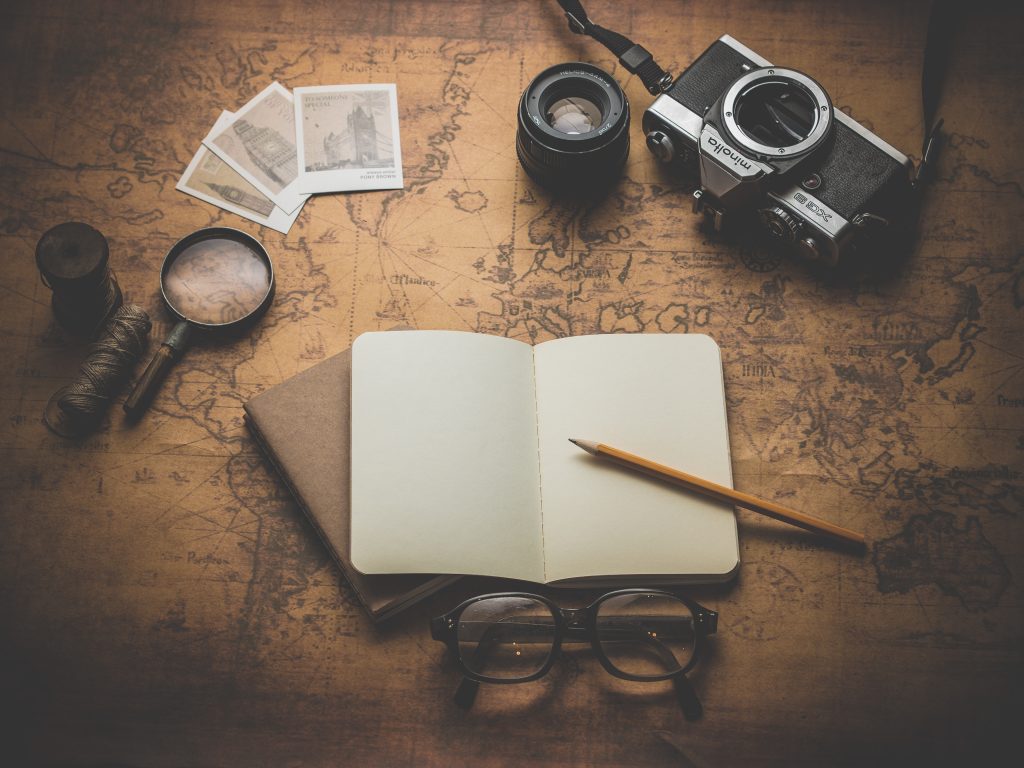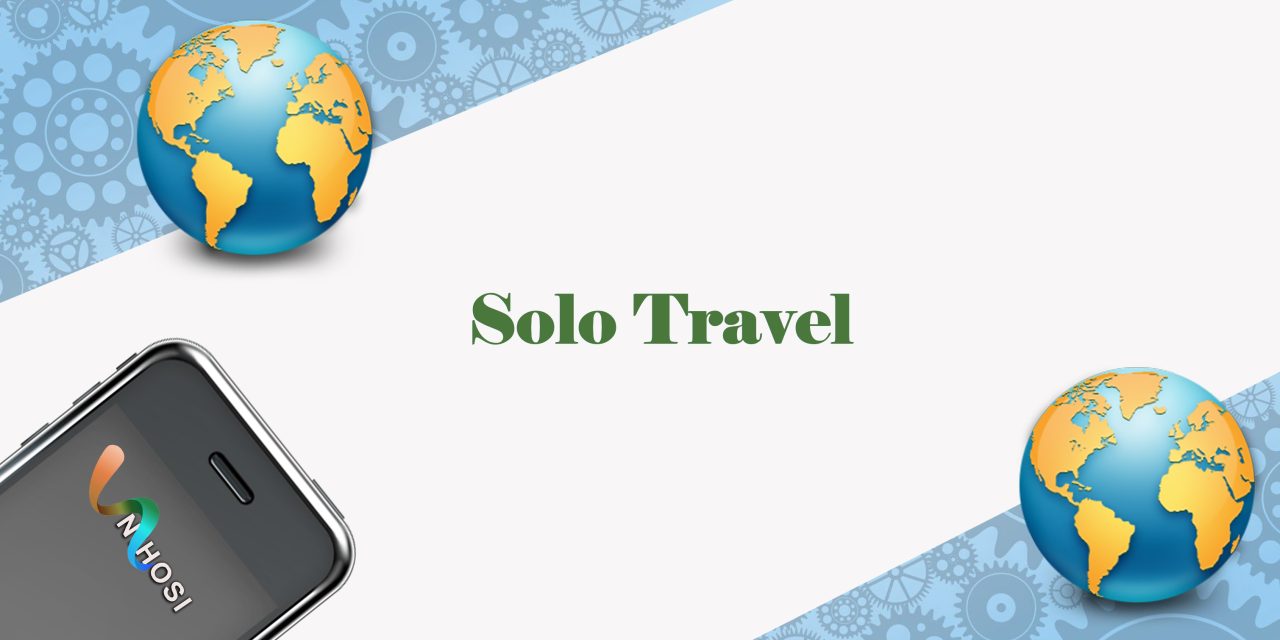Travelling is a language of the soul, a journey of self-discovery and solo travel amplifies this experience tenfold. The world is an open book and each trip you embark on alone etches an indelible chapter into the narrative of your life. The beauty of solo travel lies in the complete autonomy and freedom it offers, allowing you to explore the world at your own pace, soak in different cultures, meet diverse people and most importantly, learn more about yourself.
Indeed, solo travel can be a daunting concept. The thought of being on your own in a foreign land may feel overwhelming. But once you take that bold first step, it unfolds a world of possibilities that can be exhilarating and enlightening. This comprehensive guide to solo travel is designed to help you navigate the exciting journey of solo travel and prepare you for an enriching, unforgettable experience.

Solo Travel
In this guide, we will walk you through the nuances of solo travel. From the myriad benefits it offers to the challenges you may encounter, from planning your solo adventure to staying safe on the road, from meeting new people to documenting your journey, we have got you covered. So, buckle up and let’s embark on the thrilling journey of solo travel!
Why Solo Travel?
What compels someone to pack their bags and traverse across foreign landscapes alone? The answer is as rich and varied as the landscapes themselves. To some, solo travel is a journey of self-discovery, to others, it’s a chance to gain a fresh perspective on life, and to many, it’s an opportunity to experience unadulterated freedom.
Self-Discovery: Solo travel is often seen as a voyage of self-discovery. As you navigate through foreign cultures and experiences, you also delve deeper into understanding yourself. You may discover strengths you didn’t know you had, interests you never explored, or perspectives you never considered. The introspective nature of solo travel allows you to reflect on your identity and helps you grow as an individual.
Freedom and Flexibility: When you travel alone, the world is your oyster. You can go wherever you want, do whatever you want, and change your plans at a moment’s notice without having to consider anyone else’s preferences or schedules. This freedom to customize your journey can be incredibly liberating and enriching.
New Perspectives: Solo travel can provide a fresh outlook on life. As you meet diverse people, immerse yourself in different cultures, and face various challenges, your worldview evolves. You may find yourself becoming more empathetic, open-minded, and resilient. This fresh perspective can be incredibly transformative and extend beyond your travels into your daily life.
Building Confidence: Solo travel can also be a great confidence booster. Whether it’s overcoming language barriers, navigating unfamiliar streets, or trying new activities, every challenge you overcome strengthens your self-confidence and self-efficacy. Over time, you’ll find that you can handle situations you never thought you could, fostering a sense of empowerment that stays with you long after your journey has ended.
In essence, solo travel is about more than just seeing new places. It’s about personal growth, freedom, and gaining a deeper understanding of the world around us. If you’re open to it, solo travel can be a transformative, life-changing experience.
Benefits of Travelling Solo
Solo travel is often seen as a daunting proposition, but the rewards it offers are manifold. Here are some compelling benefits of travelling solo:
1. Personal Freedom
One of the most appealing aspects of solo travel is the sense of freedom it provides. When travelling solo, you have the flexibility to make all decisions. You choose your destination, itinerary, and pace without having to compromise or accommodate others’ preferences. This autonomy can be incredibly empowering and liberating.
2. Self-Discovery
Embarking on a solo journey provides ample opportunity for introspection and self-discovery. Without familiar faces and places, you are prompted to dive deep into your thoughts, opinions, and beliefs, leading to increased self-awareness and personal growth.
3. Builds Confidence
Every challenge you overcome, and every difficulty you navigate while travelling alone contributes to boosting your self-confidence. You learn to trust your instincts, make decisions independently, and stand up for yourself, which can be incredibly empowering.
4. Greater Flexibility
Travelling alone offers unparalleled flexibility. You can change your plans on a whim, stay longer in a place you love or move on if it’s not to your liking. This freedom to adapt your plans as per your desires makes solo travel an exciting, spontaneous adventure.
5. Meeting New People
Travelling alone often opens up more opportunities to meet locals and fellow travellers. You’re more approachable when you’re on your own, and this can lead to enriching cultural exchanges, unexpected friendships, and unforgettable experiences.
6. Enhances Problem-Solving Skills
Travel can be unpredictable, and when you’re alone, you need to rely on yourself to solve problems. This can significantly enhance your problem-solving skills and resilience, which will serve you not just on your travels, but in all aspects of life.
In conclusion, solo travel is a journey not just across the globe but also within oneself. The benefits it offers go beyond the tangible and often result in transformative personal growth and a newfound appreciation for the world around us.
Challenges of Solo Travel
While solo travel offers numerous benefits, it’s not without its challenges. Being aware of these potential obstacles can help you prepare better and make your trip smoother. Here are some common challenges of solo travel:
1. Loneliness
Travelling solo can sometimes be lonely, especially during long journeys or if you’re in a place where you don’t speak the language. It’s essential to remember that it’s okay to feel lonely and there are ways to overcome it, such as joining group tours, participating in local activities, or using technology to stay connected with loved ones back home.
2. Safety Concerns
Safety can be a significant concern, particularly in unfamiliar environments. It’s crucial to stay vigilant, do your research about local customs and safe areas, keep your belongings secure, and maintain regular contact with someone back home who knows your itinerary.
3. Cost
When you’re travelling alone, all expenses fall on you. From accommodation to meals to transport, costs can quickly add up. Budgeting effectively, seeking out affordable options, and prioritising your spending can help manage your finances on the road.
4. Dealing with Emergencies
Whether it’s a lost passport, stolen wallet, or health issue, emergencies can be more stressful when you’re on your own in a foreign land. Having a plan in place, including knowing the location of your home country’s embassy, having backup copies of essential documents, and carrying necessary medicines can help tackle such situations.
5. Difficulty in Making Decisions
When travelling solo, every decision, big or small, rests on your shoulders. This constant decision-making can sometimes be overwhelming. Taking your time, doing thorough research, and trusting your instincts can help.
These challenges, while significant, shouldn’t deter you from the enriching experience of solo travel. Instead, they offer an opportunity to grow, adapt, and learn valuable life skills. After all, as they say, smooth seas never made a skilled sailor!
Planning Your Solo Adventure
Planning is a crucial aspect of solo travel. It ensures a seamless journey and helps you be prepared for different scenarios. Here are some essential steps for planning your solo adventure:
1. Choose Your Destination
Picking the right destination is vital for a memorable solo travel experience. Think about what you want from the trip – whether it’s adventure, relaxation, cultural immersion, or culinary exploration. Research on safety, local customs, transportation, and tourist attractions. Visit www.nihositravels.com for some excellent destination suggestions tailored for solo travellers.
2. Create a Budget
Determine how much you can afford to spend on the trip and stick to it. Your budget should include all costs – flights, accommodation, meals, local transportation, activities, souvenirs, and emergency funds. Using a reliable travel agency like www.nihositravels.com can help manage your budget effectively.
3. Book Your Travel and Accommodation
Once you have your budget, start booking your travel and accommodation. Look for deals and discounts on flights and hotels. Booking with Nihosi Travels ensures a smooth booking experience and offers excellent deals for solo travellers.
4. Plan Your Itinerary
Having a well-planned itinerary ensures you make the most of your trip. Research your destination and make a list of places you want to visit and things you want to do. However, also leave room for flexibility to explore unexpected opportunities.
5. Pack Smart
When travelling solo, it’s important to pack light but smart. Carry all the essentials but avoid overpacking. Use packing cubes to organize your stuff and consider your destination’s climate and cultural norms while packing.
6. Prepare for Emergencies
Carry copies of your essential documents, have a list of emergency contacts, know the location of your country’s embassy in your destination, and have a plan in case of a health emergency.
Remember, planning is the first step towards a successful solo travel experience. A good plan, coupled with a sense of adventure, will ensure your solo journey is an unforgettable one.
Choosing Your Destination
Choosing the right destination for your solo adventure is perhaps the most exciting part of your planning process. Your destination sets the tone for your journey, and the right choice can make your solo trip an unforgettable one. Here’s how you can go about choosing your destination:
1. Define Your Interest
Every journey begins with a question: What interests you? Are you an adventure junkie looking for your next adrenaline rush or a history buff interested in exploring historical sites? Maybe you’re a nature lover seeking serene landscapes or a foodie wanting to indulge in culinary delights. Defining your interest will narrow down your destination choices and set the foundation for an enjoyable trip.
2. Research Safety
Safety should be a top priority, especially for solo travellers. Look for destinations that are considered safe for solo travellers. Check travel advisories, read about others’ experiences, and look into the local culture and customs. This doesn’t mean you can’t visit more challenging destinations, but it’s important to be well-prepared and informed.
3. Budget Considerations
Your budget is a determining factor in choosing your destination. Some countries are more affordable to travel than others. Research the cost of living, accommodation, meals, and transportation costs of your desired destinations to make an informed decision.
4. Ease of Travel
Consider how easy it is to travel within your chosen destination. Is public transportation easily accessible? How well connected is the place? Are people tourist-friendly? Is there a language barrier? These factors can greatly affect your solo travel experience.
Once you’ve considered all these factors, it’s time to make your choice. Remember, it’s not just about the destination, but the journey. So choose a place that excites you, challenges you, and ultimately, enhances your understanding of the world. And if you need more help or inspiration, remember to visit www.nihositravels.com for expert advice and travel guides.
Budgeting for Solo Travel
Effective budgeting is essential for a stress-free solo travel experience. With all costs falling onto you, it’s important to manage your finances wisely. Here are some key steps to creating a realistic budget for your solo adventure:
1. Determine Your Budget
Start by determining the total amount you’re willing and able to spend on your trip. This amount should be affordable, taking into account your regular expenses and saving goals. Remember, travel is an enriching experience, but it shouldn’t put you in financial strain.
2. Break Down Your Costs
Once you have a total budget, start breaking it down into categories. This should include airfare, accommodation, meals, transportation, activities, shopping, and an emergency fund. Make sure to research prices in your destination to make accurate estimations.
3. Find Ways to Save
Look for ways to reduce costs wherever possible. This could include travelling in the off-season, booking flights and accommodation in advance, eating at local restaurants instead of tourist hotspots, and using public transport instead of taxis. Visit www.nihositravels.com for affordable travel and accommodation deals.
4. Keep Track of Your Spending
Once you’re on your trip, make sure to keep track of your spending. This will not only ensure you stay within your budget, but it will also help you understand your spending habits better, which can be helpful for future travels.
5. Plan for Emergencies
Unexpected costs can arise when you’re travelling. This could be anything from a health issue to a lost bag. Having an emergency fund can save you from financial stress and ensure your trip goes smoothly.
Remember, the aim of budgeting is not to restrict your experiences, but to allow you to enjoy your trip without financial worries. Smart budgeting leads to smart travelling!
Safety Considerations
Your safety is paramount when you’re travelling solo. From researching your destination thoroughly to staying connected, here are some key safety considerations to keep in mind:
1. Research Your Destination
Before you leave, learn as much as you can about your destination. Understand the local customs, laws, and safety concerns. Check for travel advisories and familiarise yourself with the local areas to avoid. This knowledge will help you feel more confident and ensure you don’t inadvertently put yourself in a risky situation.
2. Share Your Itinerary
Let someone you trust know your travel plans. Share your itinerary, including your flights, accommodation details, and a rough schedule of where you’ll be each day. Regularly check in with this person so they know you’re safe.
3. Stay Connected
Keep your phone charged and with you at all times. Have local emergency numbers saved, and consider investing in a local SIM card or an international roaming plan to ensure you’re always reachable.
4. Be Aware of Your Surroundings
Stay vigilant and aware of your surroundings, especially when in crowded places where pickpocketing is common. Also, be cautious with your alcohol consumption – you need to stay alert and in control.
5. Protect Your Valuables
Keep your money, passport, and other valuables secure. Consider using a money belt or an anti-theft bag and make digital copies of your important documents. Avoid flashing expensive items, like jewellery or high-end electronics, which can make you a target for thieves.
6. Purchase Travel Insurance
Travel insurance is a must. It can protect you from significant costs if you need medical treatment overseas, if your flight gets cancelled, or if your bags get lost or stolen. Make sure to understand what’s covered in your policy.
Your safety is in your hands when you’re travelling solo. By taking these precautions, you can help ensure a safe and enjoyable journey. Remember, always trust your instincts – if something doesn’t feel right, it probably isn’t.
Packing for Solo Travel
When travelling alone, it’s crucial to pack smart. This not only saves you from carrying unnecessary weight but also makes it easier to keep track of your belongings. Here are some key tips on packing for solo travel:
1. Pack Light
The golden rule of solo travel packing is to pack light. Remember, you’ll be the one carrying your luggage around, so make sure it’s manageable. Opt for a backpack or a suitcase with wheels for easy transportation. Also, leaving some space in your luggage for souvenirs or other purchases is a good idea.
2. Choose Versatile Clothing
Pack clothes that are versatile and suitable for various weather conditions and activities. Prioritize comfort over style and remember to respect the local culture – some countries have specific dress codes for men and women.
3. Don’t Forget the Essentials
Make a checklist of essentials to ensure you don’t forget anything. This should include travel documents, money, essential toiletries, medicines, a phone charger, and any other items you use daily. Also, it’s a good idea to carry photocopies of important documents and leave a copy at home.
4. Pack Smartly
The organization is key to packing smartly. Use packing cubes or plastic bags to separate your items. Roll clothes instead of folding them to save space and avoid wrinkles. Keep your essentials and valuable items in your carry-on bag.
5. Stay Secure
Keep your luggage secure by using TSA-approved locks. You can also use luggage tags to help identify your bags. Don’t leave your luggage unattended in public places and always keep your valuables close to you.
Remember, the goal of packing for solo travel is to be prepared, not overloaded. Prioritize your needs, pack efficiently, and your journey will be all the more enjoyable!
Navigating Locally
Once you’ve reached your destination, navigating the locale is the next big adventure. From public transport to local norms, here’s what you need to know to move around like a local:
1. Understanding the Public Transport System
Getting familiar with the local transportation system can save you time and money. Research in advance about the various modes of transport available – buses, trains, trams, or metros. Download offline maps or transportation apps to help you navigate. And always keep a paper map as a backup.
2. Respect Local Customs and Norms
Each place has its own set of cultural norms and customs. Make sure to respect them. This could mean dressing modestly, observing silence in certain areas, or following specific dining etiquette. When in doubt, observe what the locals are doing.
3. Communicate with Locals
Interacting with locals can enhance your travel experience. They can provide insights about the place that you won’t find in guidebooks. Learning a few basic phrases in the local language can be helpful and appreciated.
4. Be Mindful of Safety
While exploring locally, always keep safety in mind. Avoid secluded areas, especially at night, and keep your belongings secure. Be aware of your surroundings and trust your instincts.
5. Sustainable Tourism
Be a responsible traveller. Respect nature, don’t litter, and try to minimize your carbon footprint. Support local businesses and consider volunteering or contributing to the local community.
Navigating locally is an exciting part of solo travel. It allows you to immerse yourself in the local culture and experience the destination from a closer perspective. Embrace the adventure, but always remember to respect the locale and its norms.
Meeting New People
One of the greatest joys of solo travel is the opportunity to meet new people and make lasting friendships. Being alone makes you more approachable and gives you the freedom to interact with people you might not otherwise meet. Here are some tips on meeting new people during your solo adventure:
1. Be Open and Approachable
The first step to meeting new people is being open and approachable. Smile, make eye contact, and show interest in others. Remember, everyone has a story to tell. All it takes is a friendly smile to start a conversation.
2. Stay in Social Places
Choosing the right accommodation can play a significant role in your social interactions. Hostels are great places to meet fellow travellers. Similarly, attending local events, cafes, parks, and local markets are good places to interact with locals.
3. Join Group Activities
Whether it’s a group tour, a cooking class, or a local workshop, joining group activities can be a great way to meet people. These shared experiences often lead to meaningful conversations and friendships.
4. Use Social Media
There are numerous travel communities and forums online where you can connect with other travellers. You can also use social media to keep in touch with the people you meet on your journey.
5. Respect Cultural Differences
When meeting people from different cultures, it’s important to respect their customs and beliefs. Be sensitive to cultural nuances and avoid sensitive topics. Remember, understanding and respecting cultural differences enriches our travel experiences and makes us better global citizens.
Meeting new people and forming meaningful connections is an enriching part of the travel experience. It provides a deeper understanding of different cultures and adds memorable moments to your solo journey. So, don’t be shy, take the first step, and you never know, you might just meet a friend for life!
Staying Healthy
Staying healthy is an important aspect of solo travel. A minor health issue can become a major problem when you’re on your own in a foreign land. Here’s how you can maintain your health during your solo adventure:
1. Eating Right
Maintaining a balanced diet while travelling can be challenging but it’s crucial for your health. Try local foods but also ensure you’re getting enough fruits, vegetables, and proteins. Stay hydrated, especially in hot climates.
2. Stay Active
While travelling, you’ll likely be more active than usual. Whether it’s walking through city streets, hiking mountains, or exploring museums, solo travel often involves a lot of physical activity. So, prepare yourself before the trip with regular exercise and stay active during your trip.
3. Prioritize Rest
With so much to see and do, it’s easy to neglect rest. But getting enough sleep is essential to maintain your health and energy levels. Listen to your body and ensure you’re getting enough rest, even if that means missing out on a late-night event or sleeping in one morning.
4. Stay Hygienic
Washing your hands regularly, using hand sanitiser, avoiding unclean food or water, and maintaining personal hygiene can prevent many common travel-related illnesses.
5. Prepare for Emergencies
Carry a basic first-aid kit with essentials like band-aids, antiseptic wipes, and over-the-counter medication for common ailments. Also, understand your health insurance coverage and know the location of hospitals or clinics at your destination.
6. Mental Health
Mental health is just as important as physical health. Travelling alone can be emotionally challenging. If you’re feeling lonely or overwhelmed, take some time out for self-care. It’s okay to have bad days and it’s okay to take breaks. Remember, your mental well-being is important.
Staying healthy allows you to fully enjoy your solo adventure. After all, health is the true wealth!
Overcoming Loneliness
While travelling solo can be liberating, it can also get lonely at times. You may miss familiar faces, shared laughter, and having someone to share your experiences with. However, there are many ways to overcome loneliness when travelling alone:
1. Reach Out to Loved Ones
With the technology we have today, staying connected with loved ones is only a click away. When loneliness strikes, don’t hesitate to call a friend or family member. Share your experiences, listen to their voices, and you’ll instantly feel better.
2. Make New Connections
Meeting new people is one of the greatest antidotes to loneliness. Engage in conversations with locals or other travellers. Attend local events or join group activities. These interactions can lead to new friendships and enrich your travel experience.
3. Enjoy Your Own Company
Solo travel provides a great opportunity to enjoy your own company. Do things that you love – read a book, listen to your favourite music, write a journal, or simply observe your surroundings. Learning to be comfortable in your own company is an invaluable skill.
4. Stay Active
Keep yourself busy with sightseeing, trekking, exploring, or learning something new. When you’re active, you have less time to feel lonely. Plus, activities keep your mind engaged and boost your mood.
5. Practice Mindfulness
Practicing mindfulness can help manage feelings of loneliness. It allows you to fully experience the present moment and reduces feelings of isolation. You can practice mindfulness through meditation, mindful eating, or simply by paying attention to your senses.
Remember, it’s completely normal to feel lonely at times and it’s okay to miss home. After all, solo travel is as much about embracing the highs as it is about navigating the lows. And when you do, you come out stronger and more resilient.
Documenting Your Solo Adventure
Documenting your solo adventure is a wonderful way to capture memories and share your experiences. From photography to journaling, there are many ways to record your journey. Here are some suggestions:
1. Keep a Travel Journal
A travel journal is a great way to document your thoughts, feelings, and experiences. You can write about the places you visited, people you met, food you tried, or just about anything that struck you. You can also paste tickets, postcards, or other mementos.
2. Photography
Photos are a great way to capture moments and landscapes. They serve as visual reminders of your journey. Whether you use a professional camera or your smartphone, the key to good travel photography is to capture the essence of the place.
3. Blogging or Vlogging
Sharing your experiences through a blog or vlog can be rewarding. It not only documents your journey but also provides useful information and inspiration to other travellers. You can share your tips, insights, and stories.
4. Social Media
Social media platforms like Instagram, Facebook, or Twitter are great for sharing your travel experiences. You can post photos, write updates, or even go live to share your adventure in real-time.
5. Collect Souvenirs
Collecting souvenirs is a classic way to preserve travel memories. It could be anything – a postcard, a local craft, a piece of jewellery, or even a pebble from a beach. Every souvenir carries a story and serves as a tangible reminder of your journey.
Remember, the purpose of documenting your journey is to capture your experiences and emotions, not to create a picture-perfect portrayal. So, keep it real, enjoy the process, and treasure the memories.
Coming Home: Reflecting on Your Journey
After the excitement of travelling solo, coming home can evoke a mix of emotions. While it’s comforting to return to familiar surroundings, it’s natural to feel a sense of loss after such an enriching experience. This is a perfect time to reflect on your journey:
1. Reflecting on Your Experiences
Take the time to reflect on your experiences, the places you visited, the people you met, the food you tasted, and the challenges you overcame. What surprised you about the trip? What did you learn about yourself? Reflecting on these questions can provide valuable insights and deepen the impact of your journey.
2. Sharing Your Stories
Sharing your stories can be therapeutic and inspiring for others. Whether it’s through casual conversations with friends, a blog post, or a photo album, sharing allows you to relive your experiences and spread the joy of travel.
3. Dealing with Post-travel Blues
It’s common to experience a sense of sadness or emptiness after returning from a solo trip. Maintaining a positive routine, planning your next adventure, or taking up a new hobby can help navigate through this period.
4. Applying Your Learnings
Travelling solo teaches valuable life skills like problem-solving, decision-making, and adaptability. Reflect on these learnings and find ways to apply them in your daily life. The journey doesn’t have to end once you’re home; you can carry the spirit of solo travel with you wherever you go.
Coming home is an important part of the travel journey. It’s a time to pause, reflect, and assimilate your experiences. Cherish the memories, celebrate your achievements, and start dreaming about your next adventure!
Conclusion
Travelling solo is an enriching and transformative experience. It pushes you out of your comfort zone, tests your limits, and broadens your perspective. From planning your adventure, navigating new places, meeting new people, to finally reflecting on your journey, every aspect of solo travel contributes to your personal growth.
But remember, every journey is unique, just like you. There’s no right or wrong way to travel solo. It’s about finding what works for you, embracing challenges, and savouring the joy of discovery. After all, the beauty of solo travel lies in its unpredictability and the personal journey of self-discovery it facilitates.
So, are you ready for your solo adventure? Remember, the world is a book, and those who do not travel read only a page. It’s time to turn the page and begin your solo travel story.
If you need assistance with planning your solo adventure, feel free to visit www.nihositravels.com. Safe travels!
FAQs about Solo Travel
1. Is solo travel safe?
Yes, solo travel can be safe with proper planning and precautions. It’s important to research your destination thoroughly, stay vigilant, and follow local laws and customs.
2. How can I overcome loneliness when travelling solo?
Staying connected with loved ones, meeting new people, staying active, and practicing mindfulness can help overcome feelings of loneliness when travelling solo.
3. Is solo travel expensive?
The cost of solo travel largely depends on your choices – the destination, accommodation, meals, activities, etc. By creating a budget and sticking to it, solo travel can be quite affordable.
4. How do I pack for a solo trip?
Pack light and smart. Choose versatile clothing, pack only the essentials, use packing cubes or bags for organisation, and make sure your luggage is secure.
5. How can I meet new people while travelling solo?
Being open and approachable, staying in social places, joining group activities, and using social media platforms can help you meet new people while travelling solo.
6. Can I travel solo if I’m shy or introverted?
Absolutely! In fact, solo travel can be a wonderful opportunity for introverts and shy individuals to step out of their comfort zone and learn new social skills.
7. How can I stay healthy during my solo trip?
Eating right, staying active, prioritizing rest, maintaining hygiene, and preparing for emergencies can help you stay healthy during your solo trip.
8. Where can I get help with planning my solo adventure?
You can visit www.nihositravels.com for expert advice and resources on planning your solo adventure.
Thank you for taking the time to read this comprehensive guide on solo travel. We hope it has provided you with valuable insights and will inspire you to embark on your own solo adventure. The world is full of incredible experiences waiting for you to discover them – and sometimes, the best way to do so is on your own. Safe travels and may your journey be full of unforgettable experiences and new friendships. Remember, the journey of a thousand miles begins with a single step, so why not make that step today? Visit www.nihositravels.com to start planning your solo adventure!











Subscribe To Our Newsletter
Join our mailing list to receive the latest news and updates from our team.
You have Successfully Subscribed!